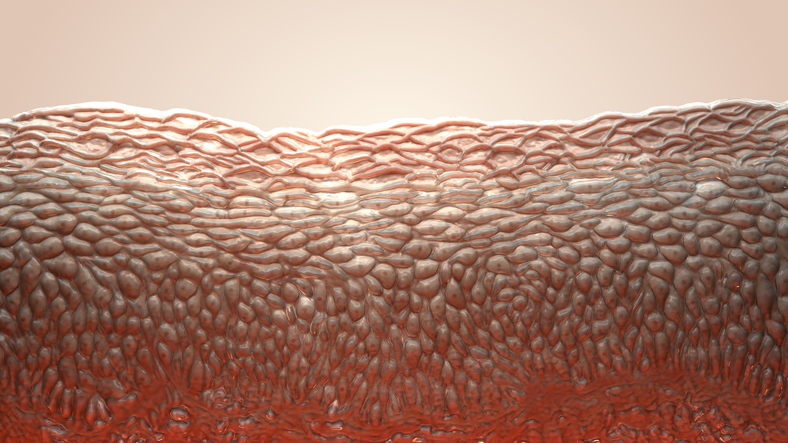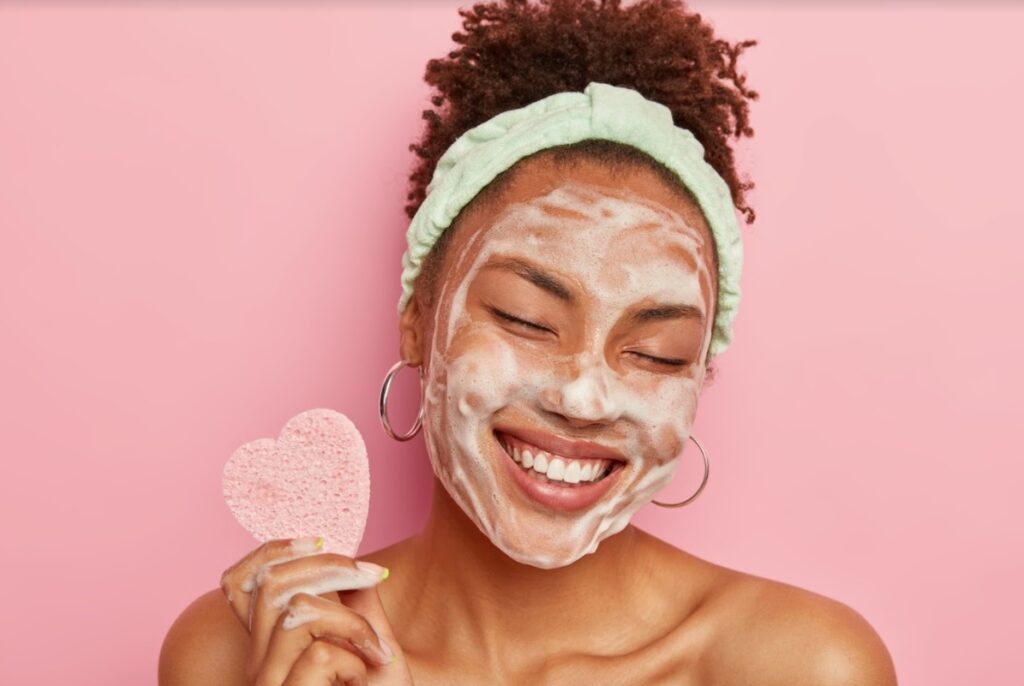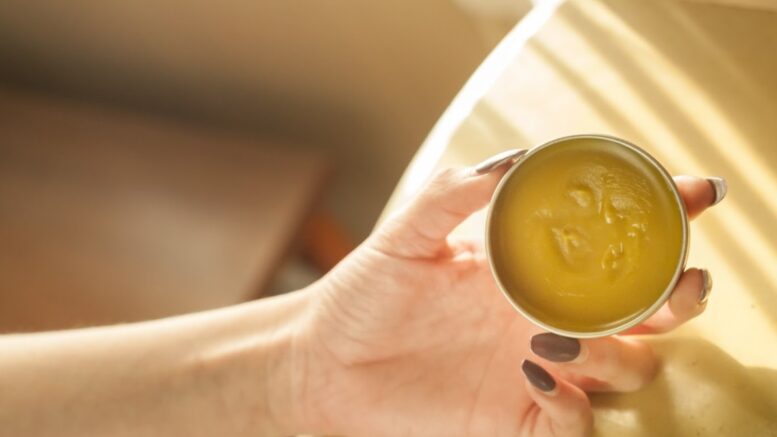CBD can be found in chocolates, cocktails, candles, and food. And now, this trendy ingredient is sweeping the cosmetics and skincare industries. CBD skincare products widely include serums, cleansers, sunscreen, chapsticks, lotions, and much more. These can be commonly found at beauty supply stores all across the country.
With growing interest in CBD infused products from the past years, it’s safe to say that the CBD craze isn’t going away anytime soon.
If you are thinking about getting on the CBD skincare but aren’t sure where to begin, here’s everything you should know:
Is CBD for skin care legal?
No regulations prohibit CBD from being used in cosmetics or skincare products. CBD does not include the psychoactive compound THC (tetrahydrocannabinol), which is found in high concentrations in marijuana. As a result, you can’t get high on it. However, certain skincare products may include THC and CBD, but under controlled amounts.
CBD for Skin
According to Researches, CBD infused products are good for treating a variety of skin disorders. Let’s look at them in detail below:
Acne
Acne is the most commonly experienced skin disorder in people. CBD has several chemicals that have oil-reducing, anti-inflammatory, and antibacterial characteristics, all of which may aid in treating acne.
2014 Study:
The impact of using CBD on human sebocytes was investigated. These cells are present on our body, mostly on the face, and their job is to release sebum (oily material). While a healthy amount of sebum serves to preserve our skin, excess secretion can cause acne. The study found that CBD can inhibit sebocytes from producing too much sebum.
2016 Study:
Moreover, the cannabis plant has antibacterial and antifungal properties, which could help prevent acne caused by many types of skin infections.
2019 Study:
CBD can also help to reduce acne scars.
Itching and dryness
2019 Study:
CBD is effective for treating several common symptoms of skin problems, such as dryness and itching. Its anti-inflammatory effects are especially effective for minimising potential dermatitis, eczema, and psoriasis.
Moreover, CBD oil is beneficial for persons with sensitive skin as it can help soothe skin and reduce irritation.
Wrinkles and ageing
2017 Study:
CBD’s antioxidant capabilities were highlighted in a study. Oxidative stress is a main factor in the ageing process. As a result, CBD’s antioxidant and anti-inflammatory qualities can aid in the prevention of skin ageing and reducing wrinkles.

Infection
Because the cannabis plant has antibacterial and antifungal characteristics, it could be used to treat skin infections.
Hazards of CBD for skincare
The World Health Organization (WHO) states that people generally tolerate CBD well. However, some common CBD adverse effects, which may be dose-dependent. The side effects can include the following:
- drowsiness
- sleepiness
- Changes in appetite and weight due to diarrhoea
It’s also worth noting that CBD may interact with some medications. So anyone who is currently taking prescription medications for any illness should consult their doctor before using any CBD skincare products.
How Can I Get the Best CBD Skin Care?
With so many CBD skincare products on the market, it’s important to know what to look for to ensure you’re getting the best CBD product. Here are some shopping tips for CBD:
Ingredients:
Check the ingredient list for the word “cannabidiol.” Other words, such as hemp seed oil or extract, are not INCI-compliant. Know that hemp seed oil or extract is not the same thing as CBD oil.
Value in mg:
Many CBD skincare brands state the overall cannabidiol content in milligrammes, and some manufacturers break it down further in detail. There is a set rule on how much CBD for skin requires per application. But we do know that skin possesses receptor sites for this chemical. When CBD gets attached to them, it can block signals that cause the skin to react abnormally.
To ensure you’re getting what the label promises, ask the brand or check to see if they provide third-party certification on the purity and claimed amount of CBD.
Packaging:
Look for CBD skincare that comes in stable packaging. Do not get the ones in jars, clear bottles, or anything else that exposes this ingredient to a lot of light or air, and exposure to light and heat make it less effective.
Some CBD businesses label their products as “isolate,” “full-spectrum,” or “wide spectrum.” Although none of these terms is regulated, they can be useful distinguishers:
- CBD isolation refers to a product that contains only CBD and no other cannabinoids or naturally occurring compounds such as flavonoids or terpenes.
- Full-spectrum CBD refers to everything present in the hemp plant, including trace levels of THC, other cannabinoids including CBG (cannabigerol), and antioxidant chemicals, in addition to the CBD.
- Wide-spectrum CBD: THC is not detected in CBD with a broad spectrum. THC can be in traceable amounts in full-spectrum CBD, but it must be below 0.3% to be declared non-active.
Before you try a CBD skincare product, follow these seven steps
For now, we know that CBD products are generally safe, and preliminary research indicates that they improve the condition and feel of your skin. However, don’t expect it to be an all-in-one solution for all skin problems.
In other words, always consult your dermatologist or physician before switching to CBD-infused products. Don’t use CBD skincare products to address any new skin concerns solely on your beliefs until you consult with your dermatologist. If you’re thinking about trying CBD skincare, here’s what you need to know before you buy:
Test It:
First, put it to the test. CBD is well-tolerated, but it’s worth knowing that whatever specific product you are trying won’t irritate or aggravate your skin. It is important to try first, especially if you have delicate skin.
Anytime you put a plant substance on your skin, you get exposed to the risk of becoming allergic to it. Test the product on your forearm once or twice a day to see whether a rash develops.
Is your skin clear? Feel free to try it on your face to see if it makes a difference.

Check the label:
Make sure you finish your homework. The amount of CBD in the product should be explicitly indicated on the label, even if the appropriate dose isn’t yet known. With the growth in popularity comes fraud salespeople who say that their skincare products contain CBD but don’t.
You may look for warning letters delivered to a corporation for deceptive labelling on the FDA’s website. Look for the COA, or certificate of analysis, on the bottle, which confirms third-party testing.
Research about CBD
In many instances, you may find “cannabis Sativa oil” advertised as CBD oil in supermarkets, but that is just hemp oil. While CBD is produced from hemp oil, hemp oil itself contains a very small quantity of CBD. In this situation, the retailers may not be deceiving customers, but they may not fully comprehend what they’re selling.
Inquire about it
There may be licensed dispensaries in your area, depending on your state’s rules. The people who work there often have the most up-to-date information on product testing, third-party verification, and brand recommendations.
Shop wisely
When buying CBD skincare products, shop wisely. You are going to use the products directly to your skin, and no one wants to compromise the quality, and you should also not. Thoroughly check the brand, reputation, reviews and ingredients in it.
Consider using a serum
Serums are Gohara’s favourite CBD product because they’re extremely concentrated and easy to layer.
Consult a dermatologist
If you have a skin condition, CBD products might be a good addition to your treatment plan, and they might or might not. Consult your dermatologist to see if and how it would work with your present treatment plan, especially if you’re dealing with a skin issue.
What Does the Future Hold for CBD Skin Care?
CBD has a lot to promise in the future when it comes to skin issues. The most high-end CBD skincare companies have a strong incentive to be open about what’s in their products. They know they work, and science backs them up.
There are many fantastic solutions on the market today that combine other active components, such as hyaluronic acid (HA) and argan oil, to fulfil each customer’s unique needs. Whether you want a simple, pure CBD product or prefer to mix everything, there is almost certainly a fantastic CBD solution for your skin out there.
